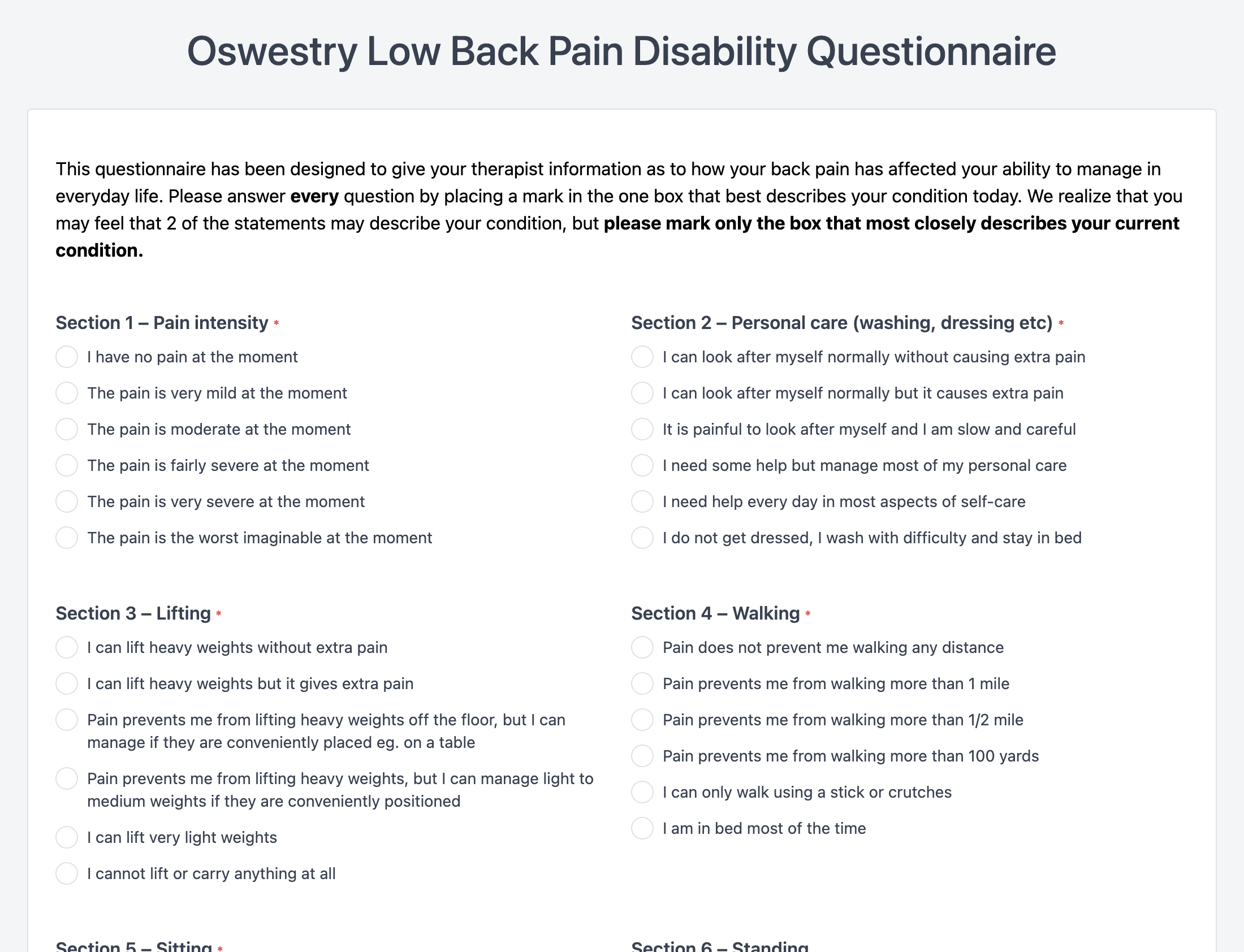

The Oswestry Low Back Pain Disability Questionnaire (ODI) is a widely used, validated assessment tool that measures a patient’s permanent functional disability due to low back pain. It evaluates how back pain affects daily life activities, enabling clinicians to assess severity, guide treatment, and document clinical progress over time.
Objective Disability Measurement: Quantifies the level of disability in patients with low back pain using a standardized and reliable method.
Treatment Planning and Monitoring: Tracks functional progress over time, helping providers evaluate treatment effectiveness and adjust plans as needed.
Insurance and Legal Documentation: Provides objective data often required for workers’ compensation claims, disability determinations, and insurance reimbursements.
Evidence-Based Care: Supports clinical decisions with measurable outcomes, aligning with best practices and quality improvement initiatives.
Enhanced Patient Engagement: Encourages patient understanding and participation by providing clear insights into their functional status and improvements.
Chiropractic Clinics: Evaluate baseline disability and measure improvement following spinal manipulative therapy.
Physical Therapy Practices: Guide therapeutic planning and track recovery progress during rehabilitation for low back injuries.
Pain Management Clinics: Assess impact of chronic pain on daily life and measure results of interventional procedures.
Orthopedic and Neurosurgery Office: Pre- and post-surgical evaluations for lumbar surgeries and conservative care protocols.
Occupational Medicine and Workers’ Compensation Evaluations: Document the extent of work-related disability and track return-to-work readiness.
Ten Functional Sections:
Scoring System:
Each section is scored 0–5 (no disability to maximum disability). Total scores are calculated as a percentage out of 50 possible points, then multiplied by 2.
Interpretation Guidelines:
Clinically Significant Change:
A 10–12% change is generally considered meaningful.
Initial Evaluation:
Administer at the start of care to establish a disability baseline.
Ongoing Tracking:
Repeat every 2–4 weeks or at major treatment milestones.
Patient Instructions:
Ensure patients answer each question based on their condition that day.
Scoring Consistency:
Train staff on consistent score calculation and interpretation.
Record Keeping:
Integrate ODI results into EMRs, progress notes, and billing documentation.